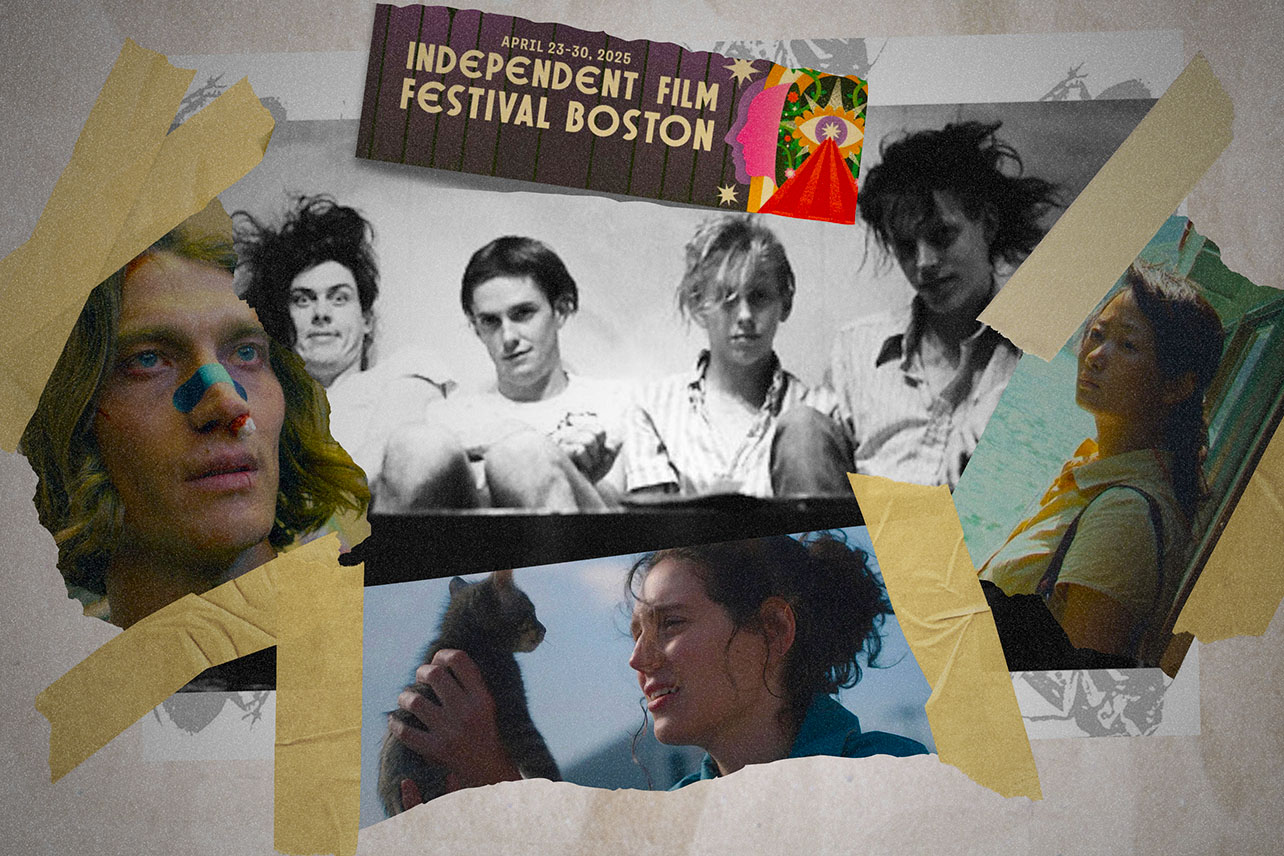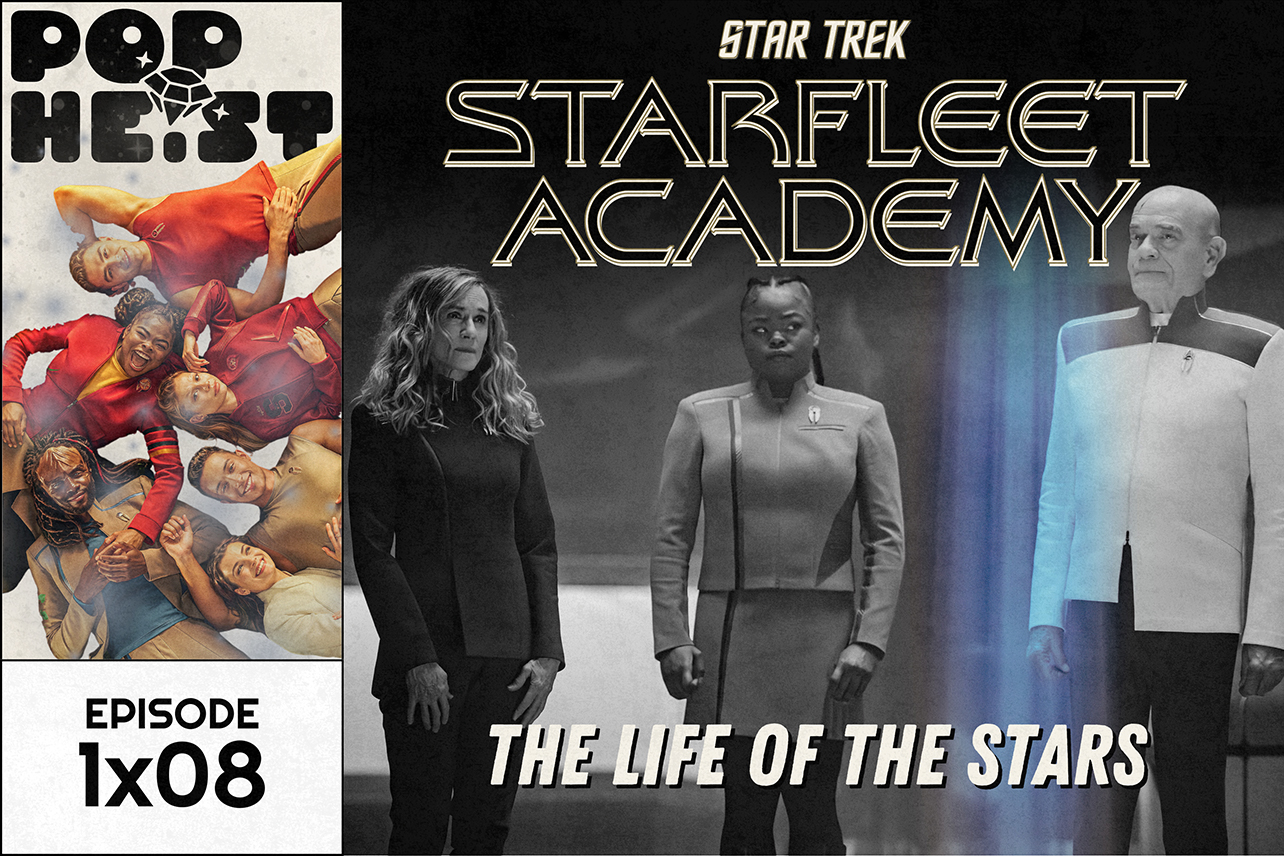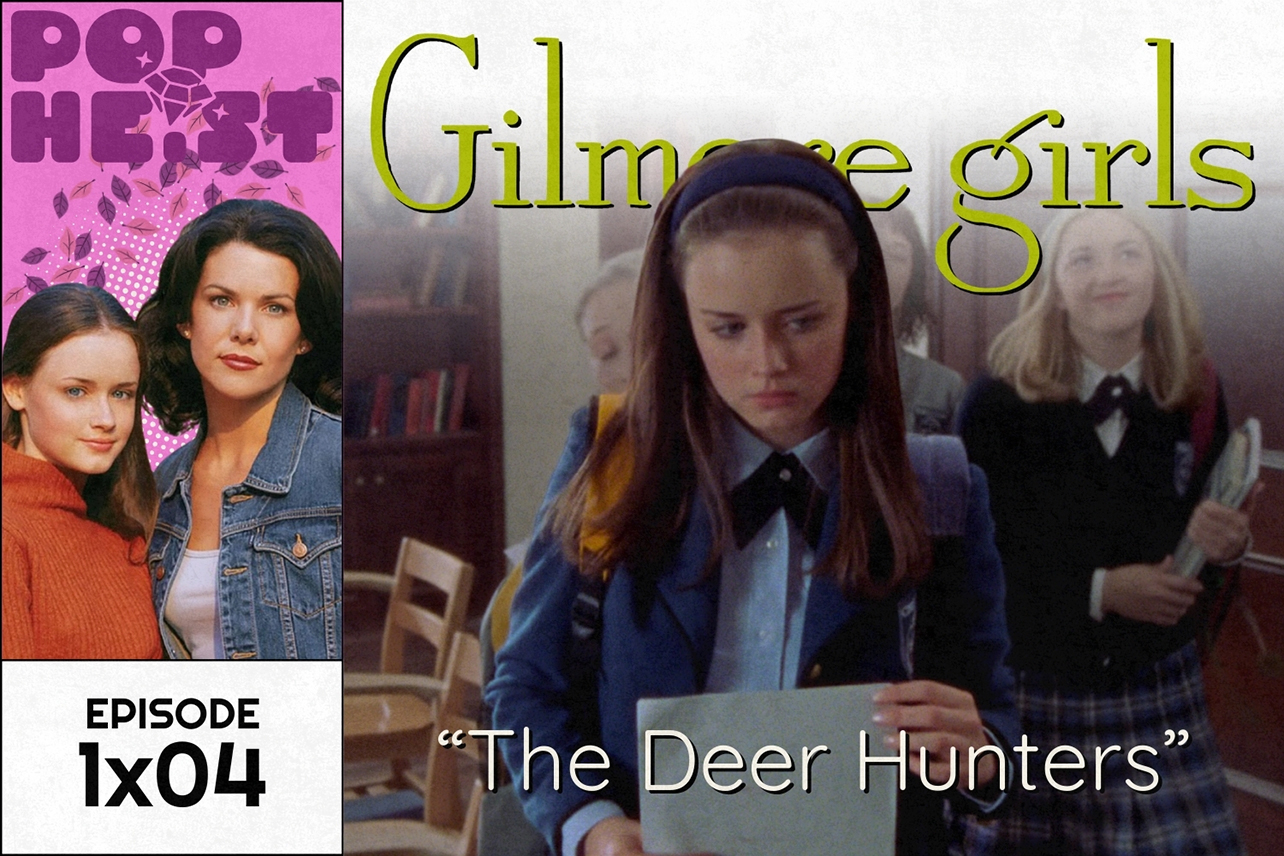It's the big festivals in the U.S., and other North American territories, and on other continents, that enjoy the greatest exposure to a broader audience of cinema's devotees: Sundance, Cannes, the New York Film Festival, South by Southwest, Toronto International Film Festival. But focusing on these festivals alone (not to mention ones lacking the same recognition, though not the prestige, a'la the Berlinale or Venice) belies the breadth of annual festivals spanning the world, and frankly? It's the smaller events, the local ones held in your own backyard, that most impact the communities that make up the filmgoing community writ large.
Independent Film Festival Boston is one such event, and speaking in my capacity as a citizen of the Greater Boston Area, it's an exemplar of what local-scale festivals can offer: a chance at stumbling upon a new film, or at least a new-to-you film, programmed alongside a few buzzier titles fresh off of victory laps at Sundance or TIFF, and fresh visions from area artists as the capper. The best perk IFFBoston has to offer, though, is its attendees; the fest draws those who practically count its locations — the Somerville Theatre, the Brattle Theatre, and the Coolidge Corner Theater — as second residences, as well as folks who live in the neighborhood and never met a community gathering they could say "no" to.
It is, in other words, not just a film festival; it's a Boston festival, where you'll meet new people, make new acquaintances, and invest yourself in the towns — and the city — that IFFBoston calls home. And hey — you'll see some wonderful movies, too! For the festival's 2025 edition, here are 5 gems that stuck out for me in particular.
Butthole Surfers: The Hole Truth and Nothing Butt
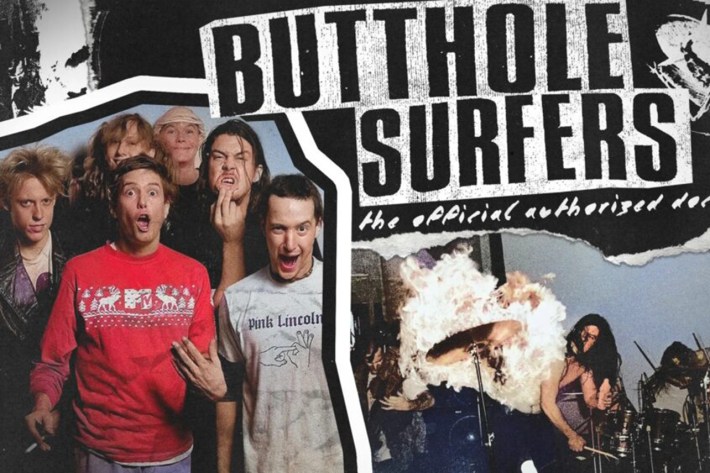
(Directed by Tom Stern)
Millennials who grew up on a steady diet of music their parents forbid them from listening to each had their own mental gymnastics routines for avoiding saying Butthole Surfers' name aloud. What a shame they didn't have Tom Stern's Butthole Surfers: The Hole Truth and Nothing Butt as a resource to contextualize the Texan chaos gremlins' sound and influence on indie rock music as well as broader popular culture. It's not as if the band chose their name, after all. And besides — without their work, rock 'n roll might've died out in the 1980s. The Hole Truth and Nothing Butt is a historical document written on a paper novelty placemat at a dive bar serving LSD as a shot chaser. It's unhinged, as befits the life and times of Gibby Haynes, Paul Leary, Teresa Nervosa, and the fleet of bassists the group's gone through over its 44 years; it is also revealing in the manner of Call Me Lucky, Bobcat Goldthwait's 2015 documentary about stand-up comic and activist Barry Crimmins. Stern doesn't linger on the film's haunting personal segments, though, and keeps the focus on how a group of San Antonio misfits altered the music world forever with their freak flags on full display.
Zodiac Killer Project
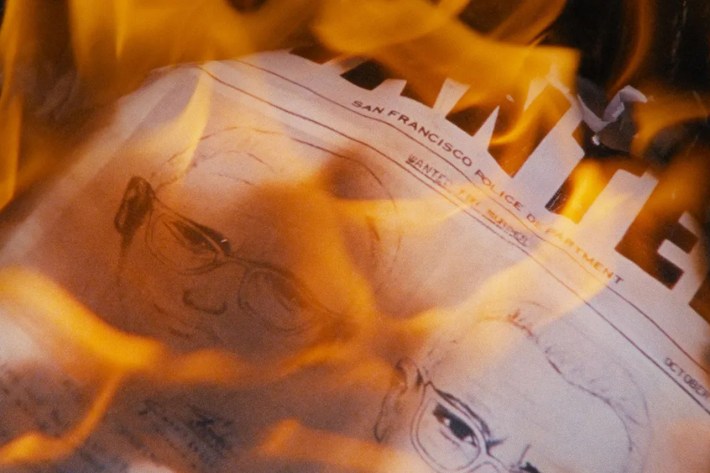
(Directed by Charlie Shackleton)
Since taking the film he salvaged from the tatters and scraps of his unceremoniously halted Zodiac Killer documentary, has Charlie Shackleton's feeling changed regarding what might have been? In 90 minutes of dry British humor and sharp British wit, Shackleton takes his audience on a reconstructive tour of the locations he'd intended to shoot for his contribution to true crime's oversaturated market, based on Lyndon E. Lafferty's own contribution to the Zodiac Killer's likewise oversaturated mythology, The Zodiac Killer Cover-Up: The Silenced Badge. He narrates, start to finish, about the techniques and tricks and tropes of true crime, how these methods sensationalize truth, and how he, too, would have done the same to his project as others before him have on other true crime projects. Given all that, maybe it's a blessing his doc was axed, lest he end up one more name in a broad collective of sensationalist hacks — and we end up deprived of his incisive critique of a genre gone awry from bloat.
Mooch
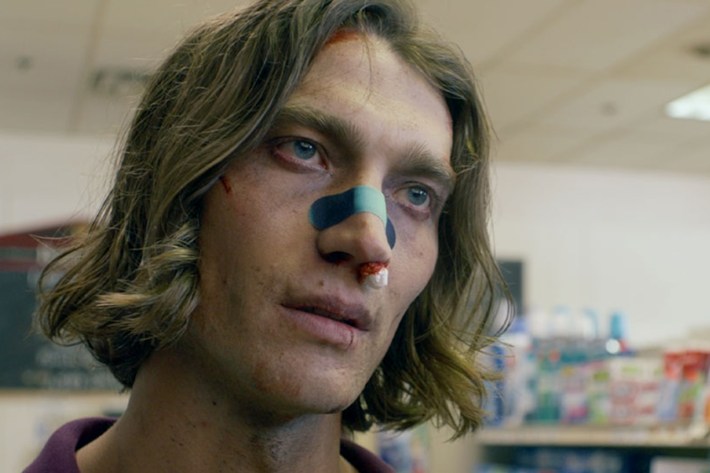
(Directed by Jeff Ryan)
The pleasure of a good noir doesn't necessarily lie in the mystery as much as the atmosphere. Mooch, the latest feature from New Jersey actor-director Jeff Ryan, shows us why: he's wrapped it around quite possibly the most pathetic and petty whodunit known to modern movies. Mooch orbits a golf course that's patronized by assholes, staffed by babyface wieners, and effectively loitered on by Shane (Ryan), who'd rather steal his neighbor's water than pay for his own utilities, or bum around the golf club than find a job that'll pay them. Then he caddies for Don (Scott Cohen), one of the club's members, who hires Shane to dig up dirt on his ex-wife, Sheila (Genevieve Carr), in spite of Shane's aversion to work. Ryan's easygoing charm gives us a handhold as the plot ambles along, a soft-boiled detective yarn where the moral is that "adulting," an example of modern slang best suited for the urn, is hard, and the only lesson learned is decisively misanthropic: once a mooch, always a mooch.
Sorry, Baby
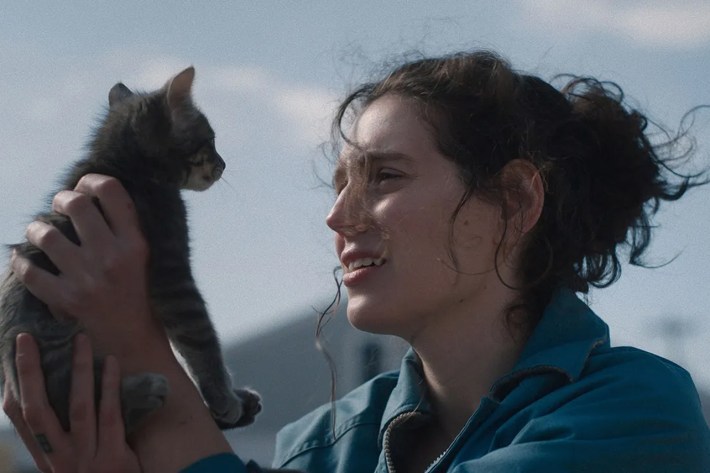
(Directed by Eva Victor)
Aren't movies like Sorry, Baby what film festivals are for? Discovery is the highest aspiration in such a setting, whether one of the Big Five (à la Sundance) or a local event (à la IFFBoston), that means more to the theaters hosting it than Sundance does to Park City at this point. Sorry, Baby already made waves at this year's edition of the latter, so for viewers who didn't make the trip out west to see the film for the first time, IFFBoston is their moment of discovery: of Eva Victor's singular, thoughtful voice as a filmmaker, of their masterclass in dramatizing trauma without either de-centering or dehumanizing the victim, of this movie's holistic representation of Agnes (Victor, a triple threat as the movie's star, director, and writer) as a whole person instead of a canvas to project upon. But everything bad that happens to Agnes connects to everything good that happens to her, and that multifaceted perspective lets Victor's sensibilities and insight stand out. Sorry, Baby is ruthlessly funny, somber through the bitter distance it affords viewers from the "bad thing" that happens to her, and yet uplifting, if muted, account of people's innate goodness. Remarkably, the movie's shape and texture read like a smooth stone more than a twenty-sided die — all of a piece within the closed circuit of Victor's storytelling.
Caught by the Tides

(Directed by Jia Zhangke)
Comparing Richard Linklater's Boyhood to Jia Zhangke's compilation film doesn't do the latter fully justice and affords the former misplaced credit; they're two different accomplishments, arrived by very different means. Linklater made Boyhood with intention. Zhangke, meanwhile, made Caught by the Tides by accident, having spent a considerable chunk of the last couple decades indiscriminately shooting footage as a force of habit. Seems the excess footage had a purpose after all — he just didn't know what, until China's COVID-19 lockdowns necessitated ingenious workarounds for restless filmmakers. But for all the fidgety energy Zhangke may have been wrestling with on the other side of the lens, Caught by the Tides is characterized by its remarkable depth of patience, as lovers Qiao Qiao (Zhao Tao, Zhangke's wife) and Bin (Li Zhubin, Tao's frequent co-star in Zhangke's films) part ways with each other against the backdrop of China's shifting economic, cultural, and social landscapes, from Shanxi to Guangdong, and 2001 to the 2020s. The film is a document of the tectonic movements that have reshaped the country in the new century, and it's especially a testament to what artists of Zhangke's caliber can do with footage that most others would write off as disposable, namely: create one of the defining films of the contemporary Chinese cinema canon.
If you haven't already, consider supporting worker-owned media by subscribing to Pop Heist. We are ad-free and operating outside the algorithm, so all dollars go directly to paying the staff members and writers who make articles like this one possible.
